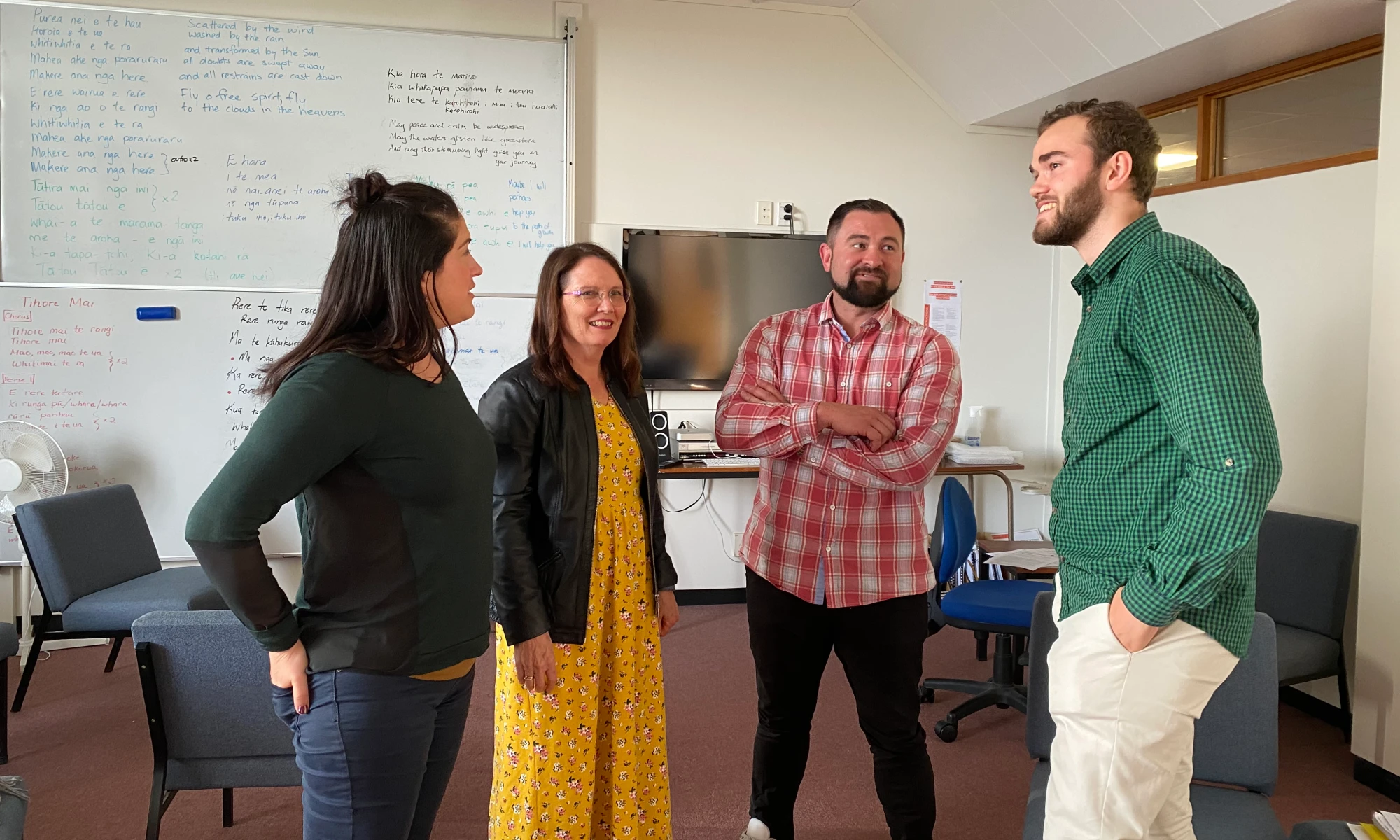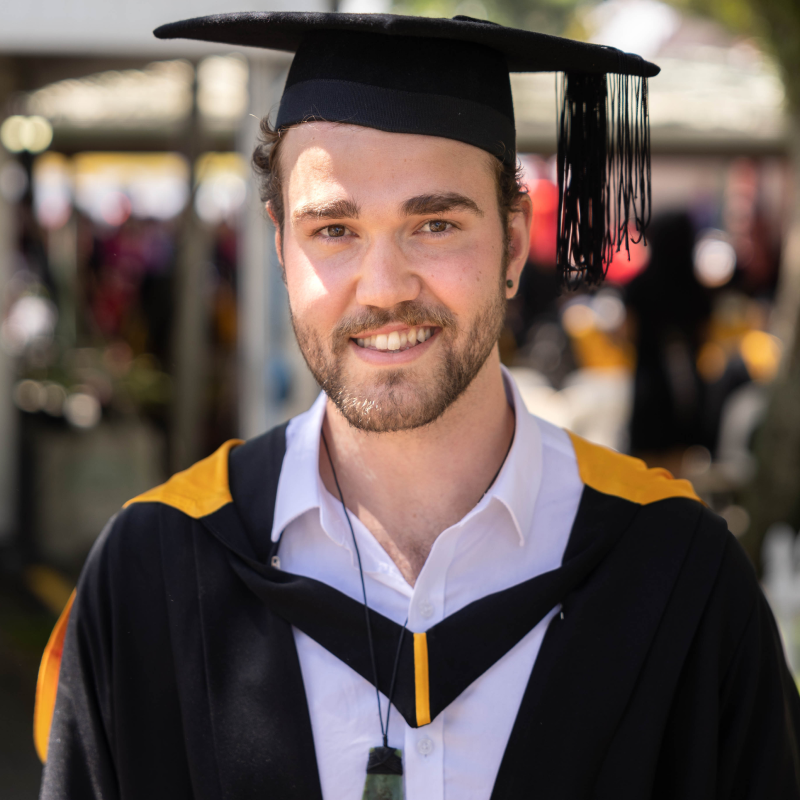
Master of Counselling

The Master of Counselling is globally recognised for its focus on narrative therapy. Cultivate professional skills rooted in constructionist theories, setting you apart in the field.
Domestic students: There has been a change of date for the selection day into the 2026 programme - this is now Wednesday, 12 November 2025.
International Students: We are not taking international applications for the Master of Counselling during 2025. We welcome you to apply in 2026 to study with us in the future.
Why study the Master of Counselling?
The Master of Counselling (MCouns) is established as a flagship degree that has seen 92% of graduates over the past six years gain successful employment.
The degree has specifically been designed for professional counsellors or supervisors interested in leadership roles within the New Zealand counselling profession.
The programme has a key teaching focus on providing experiences in which you can further develop your professional attitudes, knowledge and competencies in the areas of counselling, group leadership, mediation and practitioner research. You'll graduate with a high level of knowledge and understanding through the narrative practice this programme is known for.
For the past 20 years, our teaching staff have been active in promoting narrative therapy, beginning with a book staff produced called Narrative Therapy in Practice. Today Waikato is considered a leader in this field with several local and international publications produced each year.
This notable reputation extends also into our thriving doctoral counselling programme.
Career Opportunities
- NGO Social Service practices
- Hospice
- Private Practitioner
- Family and relationship counselling
- Corrections and Probation
- Youth services
- Career support
- Pastoral care
- School counselling
Degree information
Please note there is a selection process for the MCouns. Admission normally requires a bachelor's degree with at least a B average in the third year.
Estimated fees
$8,084 - $9,685 per year
Domestic tuition fees
Approximate annual tuition fees and costs for domestic students enrolled in one year of full-time study.
Domestic tuition costsScholarships
Visit our Scholarship finder for more information about possible scholarships.
Scholarships Finder
Relevant as of 30 October 2024.
All amounts are in New Zealand Dollars (NZD). Tuition fees shown are indicative only and may change. There are additional fees and charges related to enrolment. Please see the Table of Fees and Charges for more information. You will be sent an enrolment agreement which will confirm your fees. View information about fees free study.
Research - guidelines & application forms
For those wishing to undertake a research component within the qualification the forms and guidelines are listed below:
- EDUCA590 Directed Study - see the Directed Study Guidelines and application form
- EDUCA592 Dissertation - see the Dissertation Guidelines and application form
- EDUCA593/594 Masters Thesis - see the Masters Thesis Guidelines and application form
Research is governed by the Ethical Conduct in Research Regulations. For advice about the online Research Ethics Application please email fedu.ethics@waikato.ac.nz.
This information is provisional and subject to change.
Practical experience
Professional papers offer students the opportunity to have supported professional experience in community and or education settings. Efforts are made to cater for and respond to the individual student’s particular background and professional education goals.
Practicum placements
In order to gain a place in the programme, students must be able to demonstrate a relationship with a community-based counselling service or school or mental health service which will give them access to an appropriate practicum placement.
Students must have a commitment to ongoing appropriate professional supervision. However, students will not establish any formal contract with an agency until they have been selected into the Counsellor Education Programme and have received all the necessary information on practicum placements.
In general, students in the first year of a full-time programme complete 200 hours in a professional counselling setting and complete 80 hours of counselling. They will engage in professional supervision*. The supervisor must be a member of a professional helping body such as NZAC, NZASW, NZPsS, or NZAP. Students must engage in a minimum of 16 supervision sessions, in each of the practicum papers. Students should note that NZAC membership now requires supervision with an experienced NZAC Member.
In the second year of the full-time programme the practicum involves 450 hours in counselling settings. Up to three placements may be arranged.
Note: Successful applicants will be completely responsible for setting up an appropriate placement to meet the requirements of the counselling practicum for the various papers.
*There may be a cost involved.
Practical counselling skills
As a graduate of the Master of Counselling (MCouns) programme, you will have developed competence in the practices of counselling, and established a firm understanding in philosophical and ethical issues relating to professional counselling practice.
You'll learn how to engage critically with the theoretical concepts and research which underpins counselling practice and the knowledge of the professional context within which you work.
Not only will your studies set you up with a well-articulated theoretical position and reflective professional stance in your counselling work, you'll also gain a recognised qualification for membership of New Zealand Association of Counsellors.
Cultural experience
Manaakitanga is the epitome of hospitality and care. We're very fortunate to have expressions of manaakitanga offered by Tangata Whenua, protectors of the land, who open the space for collaboration, with the intention of weaving cultural knowledge and practice into the shaping of our counsellor education programme. The significant contributions include interchanges, connections, noho marae and visits to the following marae:
- Te Kohinga Mārama Marae at The University of Waikato (overnight noho)
- Maniaroa Marae at Mōkau or Te Ohaaki Marae at Huntly (week-long stay with workshops and presentations)
- Parihaka or Rangiriri (visit to learn about Māori resistance to land confiscation)
